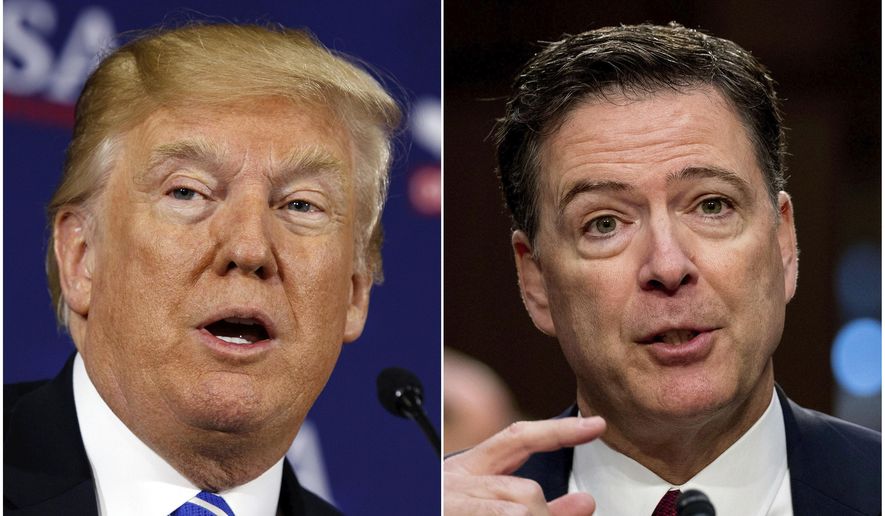President Trump said he was surprised by a report that the Justice Department won’t prosecute former FBI Director James B. Comey for allegedly violating laws on handling classified information.
“I would frankly be surprised, because what James Comey did was illegal,” Mr. Trump told reporters at the White House.
Mr. Trump said he hasn’t spoken to anyone at the Justice Department about the matter.
“I haven’t actually heard that,” he said of the report. “I know there’s a lot of things going on. That’s a piece of it, I guess.”
The Hill reported Thursday that the Justice Department inspector general’s office referred Mr. Comey for potential prosecution over his handling of memos that the FBI later determined contained classified information. But prosecutors declined to charge Mr. Comey, partly because they didn’t believe there was evidence to show that he knew and intended to violate laws on handling classified information, the report stated.
Mr. Comey, who was fired by Mr. Trump in 2017, shared memos with a lawyer friend who then shared the information with a New York Times reporter. Two of the memos contained confidential information.
Mr. Comey told FBI agents that he appeared to have lost track of two of the four memos he kept that detailed conversations with the president, according to new documents revealed this week by Judicial Watch.
The FBI sent agents to visit Mr. Comey at home in 2017, after his firing, to speak with him about the memos, which he leaked to embarrass Mr. Trump.
Agents reported: “In the first occurrence, Comey said at an unknown date and time, between January 7, 2017, which Comey believed was the date of his briefing at Trump Tower, and Trump’s inauguration on January 20th, 2017, Comey received a phone call from President Elect Donald J. Trump. The originating telephone number may have had a New York area code. Following the telephone conversation, Comey drafted and e-mailed a memo to James Rybicki and FBI Deputy Director Andrew McCabe.”
In the second case, Mr. Comey was on his way to an FBI leadership conference in Leesburg, Virginia, on March 9, 2017, when he stopped to respond to a request from Mr. Trump to contact him. Mr. Comey called the president on a top-secret telephone line, and the conversation was “all business,” the agents reported. Mr. Comey wasn’t positive that he drafted a memo of this conversation.
The agents’ account was contained in an FBI log detailing evidence collection. Judicial Watch filed a Freedom of Information Act lawsuit to obtain the Justice Department’s records pertaining to Mr. Comey’s memos and his sharing them with then-special counsel Robert Mueller’s office.
• Dave Boyer can be reached at dboyer@washingtontimes.com.




Please read our comment policy before commenting.